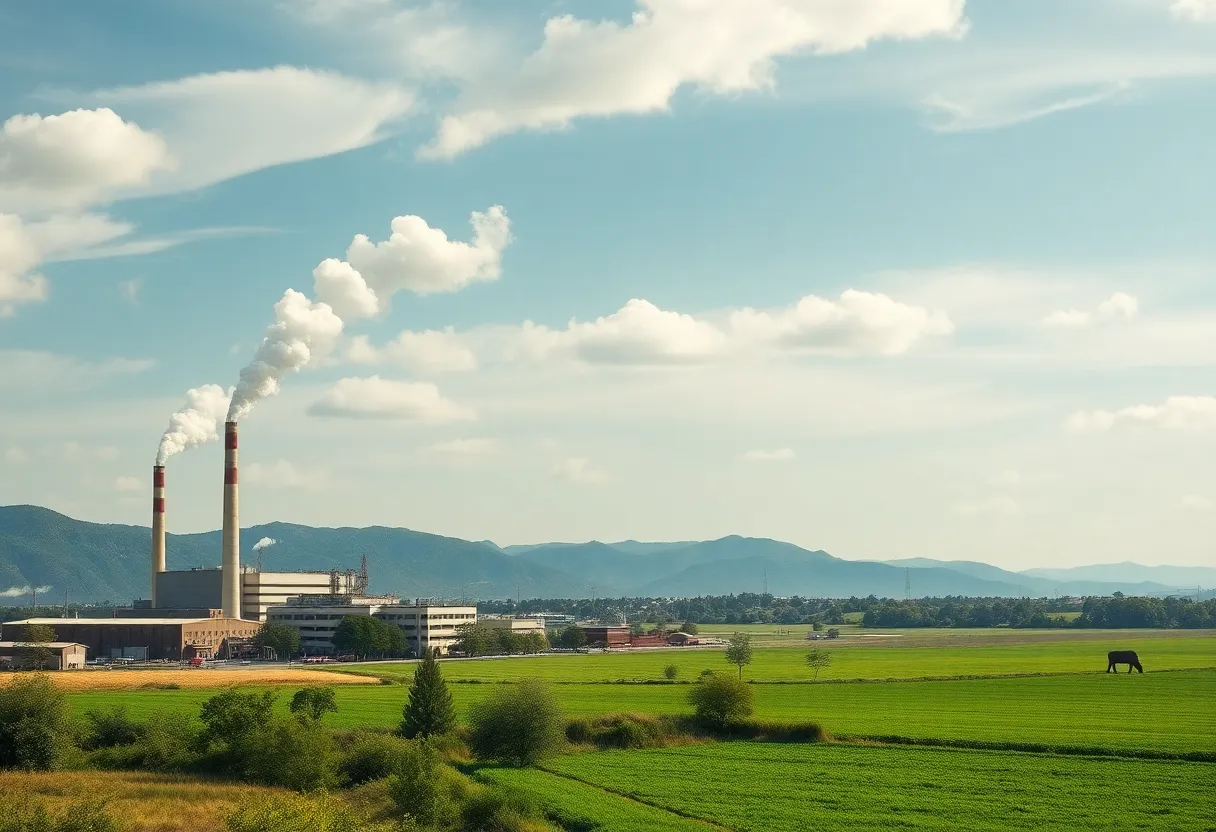California, August 20, 2025
News Summary
The U.S. Chamber of Commerce has lost a bid to pause California’s new emissions reporting laws, which will require large corporations to disclose greenhouse gas emissions and climate-related financial risks. The ruling leaves businesses to comply with these new regulations, affecting approximately 2,600 companies. The laws, signed into effect by Governor Gavin Newsom, are part of California’s efforts to enhance transparency and combat climate change, while the Chamber argues it infringes on First Amendment rights.
California—The U.S. Chamber of Commerce, along with various business groups, has recently lost a bid to pause California’s new emissions reporting laws. A ruling made by Judge Otis D. Wright II on August 13, 2023, prevents the suspension of these laws amidst ongoing litigation, leaving businesses to comply with significant new disclosure requirements.
Under the newly enacted laws, Senate Bill 253 and Senate Bill 261, businesses earning annual revenues exceeding $1 billion will be mandated to report their greenhouse gas emissions beginning with the 2027 reporting year. Additionally, companies with revenues above $500 million will need to disclose climate-related financial risks on a biannual basis starting in January 2026. These regulations are expected to impact about 2,600 corporations operating within California.
The U.S. Chamber of Commerce argued that the emissions reporting requirements infringe upon their First Amendment rights by compelling companies to communicate certain information. However, the judge’s ruling indicated that while the laws do compel commercial speech, they serve legitimate government interests such as reducing emissions and promoting transparency to investors regarding companies’ climate impacts.
In response to the ruling, the California Attorney General’s Office expressed satisfaction, reiterating its commitment to uphold the climate disclosure laws. The U.S. Chamber of Commerce initially filed a lawsuit against the California Air Resources Board in early 2024, in an attempt to nullify the laws. The Chamber’s previous motions to block their implementation have been rejected by the courts.
A trial regarding this ongoing case is set to take place in October 2026. The disclosure laws were signed into law by California Governor Gavin Newsom on October 7, 2023. This legal development adds to a growing trend of similar emissions reporting legislation being introduced in other states, including Colorado, Illinois, and New Jersey, as well as a recent advancement of a similar bill in New York that could lead to a national reporting requirement.
On a federal level, the U.S. Securities and Exchange Commission had recently decided to drop its legal defense of proposed rules requiring public companies to disclose their greenhouse gas emissions. This decision comes in the wake of legal challenges against such regulations. Moreover, the federal government, during the Trump administration, made efforts to repeal numerous climate policies, aiming to relax restrictions on fossil fuel production.
In further legislative actions, California has introduced Senate Bill 285, which focuses on ensuring that carbon offsets used in emissions reporting adhere to specific standards. This aims to facilitate better tracking of progress towards the state’s ambitious carbon reduction goals set for 2045.
Key Features of California’s Emissions Reporting Laws
| Feature | Senate Bill 253 | Senate Bill 261 |
|---|---|---|
| Revenue Threshold | Over $1 billion | Over $500 million |
| Reporting Requirement | Greenhouse gas emissions | Climate-related financial risks |
| Reporting Start Year | 2027 | 2026 (biannual) |
| Number of Affected Companies | Approximately 2,600 | Same as above |
FAQ
What is the impact of California’s new emissions reporting laws?
The laws will require about 2,600 companies with significant revenues to report their greenhouse gas emissions and climate-related financial risks, contributing to transparency and efforts to reduce emissions.
When do these reporting requirements take effect?
Senate Bill 253 requires reporting to begin in 2027, while Senate Bill 261 mandates biannual reporting starting in January 2026.
What prompted the U.S. Chamber of Commerce’s lawsuit?
The U.S. Chamber of Commerce contends that the laws violate the First Amendment by compelling corporations to speak in a certain way regarding their emissions.
Deeper Dive: News & Info About This Topic
- Bloomberg Law
- Courthouse News
- Politico
- Wikipedia: Emissions Reporting
- Google Search: California emissions reporting

Author: STAFF HERE MISSION VIEJO WRITER
The MISSION VIEJO STAFF WRITER represents the experienced team at HEREMissionViejo.com, your go-to source for actionable local news and information in Mission Viejo, Orange County, and beyond. Specializing in "news you can use," we cover essential topics like product reviews for personal and business needs, local business directories, politics, real estate trends, neighborhood insights, and state news affecting the area—with deep expertise drawn from years of dedicated reporting and strong community input, including local press releases and business updates. We deliver top reporting on high-value events such as Oso Fit 5K Fun Run and Community Health Fair, Walk Against Drugs & Community Fair, and National Night Out. Our coverage extends to key organizations like the Mission Viejo Chamber of Commerce and Providence Mission Hospital Mission Viejo, plus leading businesses in retail and education that power the local economy such as The Shops at Mission Viejo, Capistrano Unified School District, and Amazon Delivery Station. As part of the broader HERE network, including HEREAnaheim.com, HEREBeverlyHills.com, HERECostaMesa.com, HERECoronado.com, HEREHollywood.com, HEREHuntingtonBeach.com, HERELongBeach.com, HERELosAngeles.com, HERESanDiego.com, and HERESantaAna.com, we provide comprehensive, credible insights into California's dynamic landscape.


